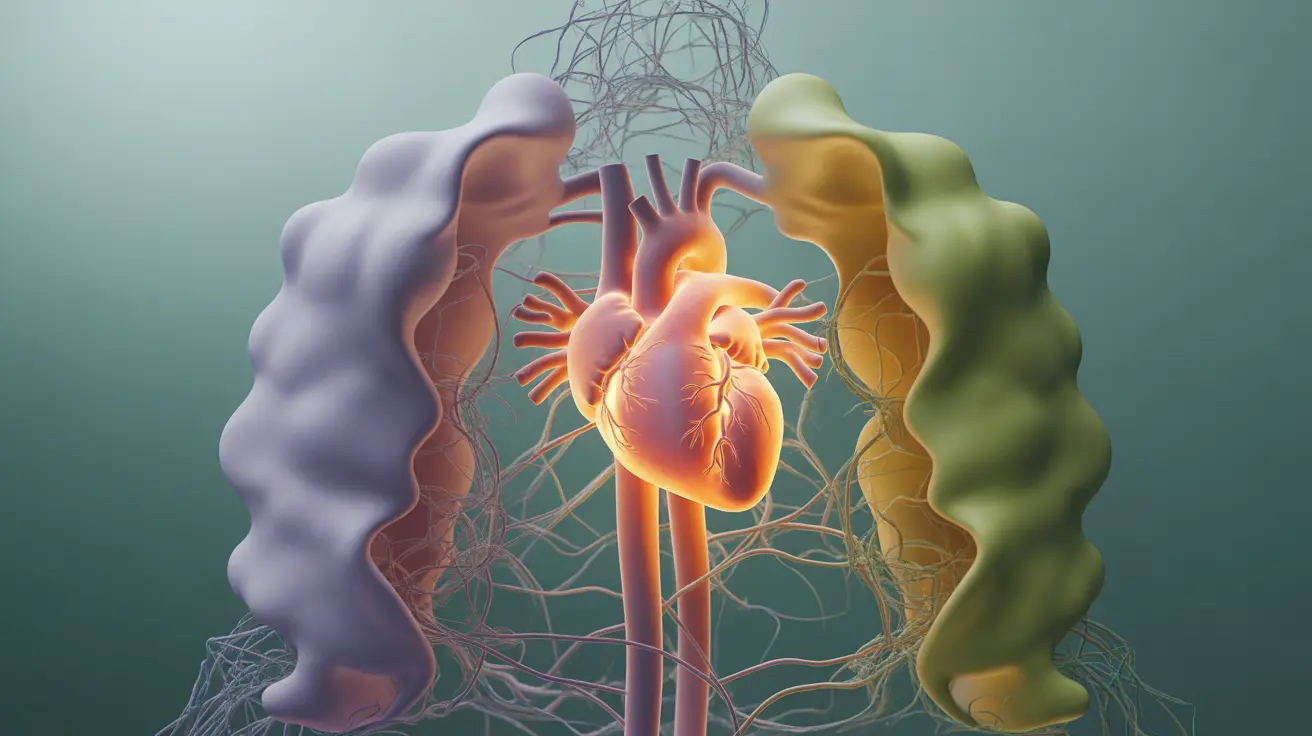In today's fast-paced world, stress has become an increasingly common part of daily life. While some stress can motivate us and help us respond to immediate challenges, excessive or prolonged stress can have serious consequences for both physical and mental health. Understanding these risks is crucial for recognizing when stress levels become dangerous and knowing when to take action.
This comprehensive guide explores the various ways chronic stress can impact your health, from cardiovascular complications to immune system suppression, and what these risks mean for your overall wellbeing.
Cardiovascular Impact of Chronic Stress
Prolonged stress places significant strain on your heart and blood vessels. When you're stressed, your body releases stress hormones like cortisol and adrenaline, which can lead to increased blood pressure and heart rate. Over time, this persistent elevation can damage your cardiovascular system in several ways:
- Increased risk of high blood pressure
- Higher likelihood of developing heart disease
- Greater chance of heart attacks and stroke
- Irregular heart rhythms
- Blood vessel inflammation
Digestive System Disruption
Your digestive system is particularly sensitive to stress, often manifesting problems that can significantly impact your quality of life. Chronic stress can cause:
- Acid reflux and heartburn
- Nausea and stomach pain
- Changes in appetite
- Irritable bowel syndrome (IBS) symptoms
- Difficulty absorbing nutrients
These digestive issues can create a cycle where physical discomfort leads to more stress, further exacerbating the original problems.
Mental Health Consequences
The psychological impact of chronic stress can be particularly devastating, affecting both cognitive function and emotional wellbeing. Common mental health effects include:
- Increased anxiety and depression
- Memory problems and difficulty concentrating
- Sleep disturbances and insomnia
- Mood swings and irritability
- Decision-making difficulties
Immune System Suppression
One of the most concerning effects of chronic stress is its impact on your immune system. When stress persists over long periods, it can:
- Reduce white blood cell count
- Increase inflammation throughout the body
- Slow wound healing
- Make you more susceptible to infections
- Worsen allergic reactions
Hormonal and Metabolic Effects
Chronic stress can disrupt your body's hormonal balance and metabolic processes, leading to:
- Weight gain or loss
- Diabetes risk increase
- Thyroid problems
- Reproductive issues
- Accelerated aging
Frequently Asked Questions
What are the main health risks associated with chronic stress?
The main health risks of chronic stress include cardiovascular problems, weakened immune function, digestive issues, mental health challenges, and hormonal imbalances. These can manifest as high blood pressure, frequent illnesses, anxiety, depression, and metabolic disorders.
How does stress affect the heart and cardiovascular system?
Stress triggers the release of hormones that increase blood pressure and heart rate. Long-term exposure to these effects can lead to inflammation of blood vessels, increased risk of heart disease, and higher chances of heart attack and stroke.
Can prolonged stress cause digestive problems or affect appetite?
Yes, chronic stress can significantly impact digestion by causing acid reflux, stomach pain, changes in appetite, and IBS symptoms. It can also affect how your body processes and absorbs nutrients from food.
What are common mental health effects of long-term stress?
Long-term stress commonly leads to anxiety, depression, memory problems, difficulty concentrating, sleep disturbances, and mood changes. It can also impair decision-making abilities and emotional regulation.
How can chronic stress weaken the immune system and increase illness risk?
Chronic stress suppresses immune function by reducing white blood cell production, increasing inflammation, and slowing healing processes. This makes you more vulnerable to infections, allergies, and other illnesses while extending recovery times.




